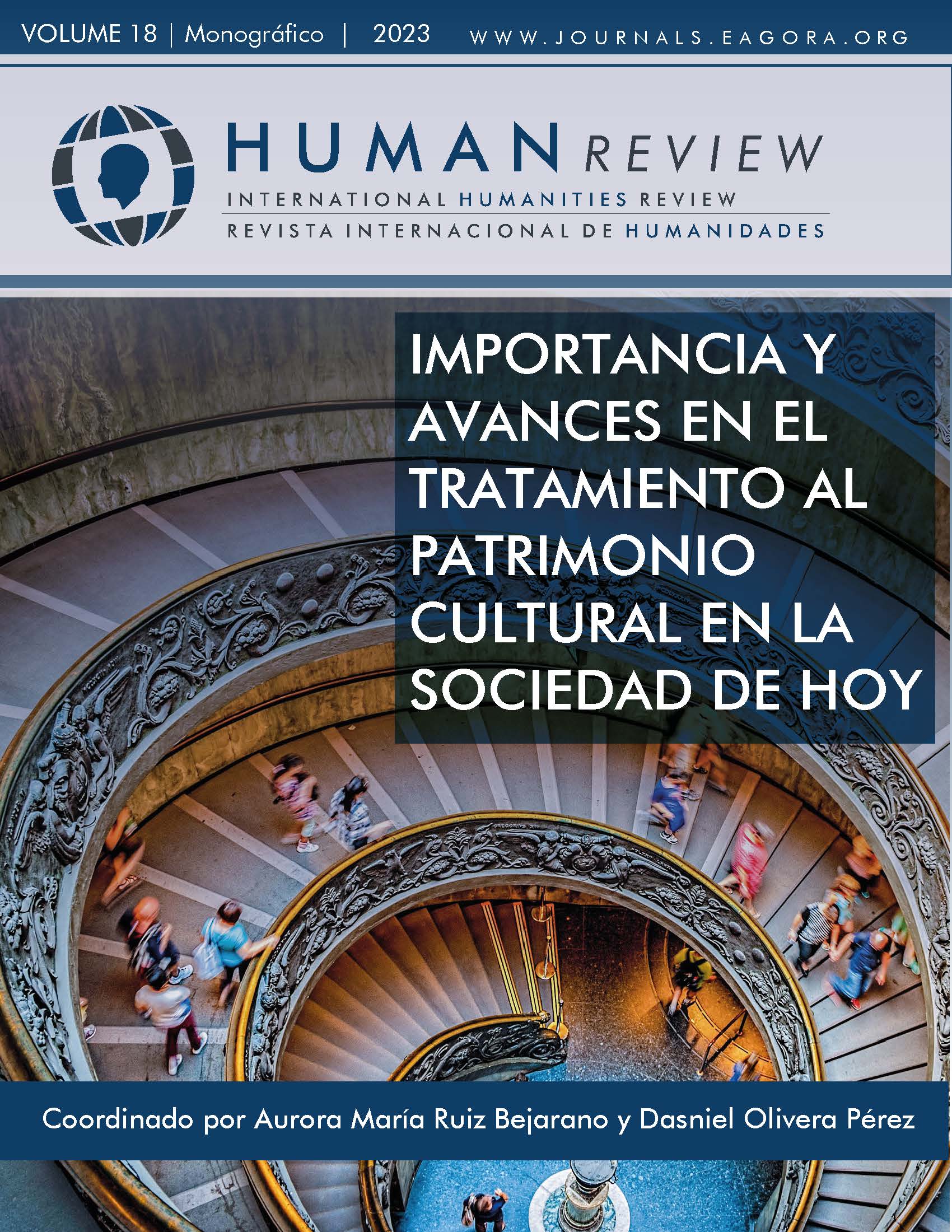The educational and social value of university orchestras
DOI:
https://doi.org/10.37467/revhuman.v18.4868Keywords:
University orchestra, Musical education, Musical intangible heritage, Non-formal education, Social transfer, Intrapersonal skills, Interpersonal skillsAbstract
The aim of this research is to determine the different training and social transfer contributions of university orchestras, based on the evaluations made by the participants in this musical activity.
The methodological approach applied is quantitative and uses the questionnaire as a data collection technique.
The results indicate that university orchestras have a great formative value that transcends the musical educational field, since their positive impact also encompasses the different dimensions of the human being and permeates society. It is concluded that it is necessary to maintain and promote this type of orchestral ensembles.
References
Angel-Alvarado, R. (2018). La crisis de la educación musical como consecuencia de la decadencia de la institución educativa. Revista Educación 42(2), 677-698 https://doi.org/10.15517/revedu.v42i2.29055
Campayo, E. A., y Cabedo, A. (2016). Música y competencias emocionales: posibles implicaciones para la mejora de la educación musical. Revista Electrónica Complutense de Investigación en Educación Musical RECIEM, 13, 124-139. http://doi.org/10.5209/RECIEM.51864
Chung, B. (2010). Music making and the well tempered life. Understanding Our Gift, 22(4), 3-5.
Duran, D. (2012). Utilizando el trabajo en equipo. Estructurar la interacción a través de métodos y técnicas. En J. C. Torrego y A. Negro (Coords.), Aprendizaje cooperativo en las aulas (pp.139-166). Alianza.
Ferrer, R. (2009). El canto coral y las orquestas infantiles, una educación en valores. Eufonía, 45, 30-38.
Gaunt, H. y Westerlund, H. (Eds.) (2014). Collaborative Learning in Higher Music Education. Routledge.
Hallam, S., y Creech, A. (Eds.) (2010). Music Education in the 21st Century in the United Kingdom. Institute of Education, University of London.
Krause, A., Davidson, J., North A. (2018). Musical Activity and Well-being: A New Quantitative Measurement Instrument. Music Perception, 29(4), 454-474. https://doi.org/10.1525/mp.2018.35.4.454
Muiños de Britos, S. M. (2010). La práctica musical colectiva. Aprendizaje artístico y social. Revista Iberoamericana de Educación, 52(2), 1-9. https://doi.org/10.35362/rie5221801
Oriola, S. y Gustems, J. (2020). El canto coral como recurso para el desarrollo de competencias socioemocionales. Eufonía, 84, 47-52.
Oriola, S., Gustems, J. y Filella, G. (2019). Las bandas juveniles de la Com. Valenciana: medio siglo promoviendo la educación musical no formal y desarrollando competencias socioemocionales. ArtsEduca, 23, 36-51. http://dx.doi.org/10.6035/Artseduca.2019.23
Oriola, S., Gustems, J., y Filella, G. (2018). Agrupaciones musicales juveniles: modelos funcionales para la motivación académica de los adolescentes. REIRE Revista d’Innovació i Recerca en Educació, 11(2), 18-30. http://doi.org/10.1344/reire2018.11.220577
Overy, K. (2012). Making music in a group: synchronization and shared experience. Annals of the New York Academy of Science, 1252(1), 65-68. https://doi.org/10.1111/j.1749-6632.2012.06530.x
Peñalba, A. (2017). La defensa de la educación musical desde las neurociencias. Revista Electrónica Complutense de Investigación en Educación Musical, RECIEM, 14, 109-127. https://doi.org/10.5209/RECIEM.54814
Quiroga-Fuentes, I. y Angel-Alvarado, R. (2020). Prácticas inclusivas en orquestas infanto-juveniles: un estudio de caso en Chile. ArtsEduca, 28, 140-151. https://doi.org/10.6035/Artseduca.2021.28.11
Rodríguez Cortés, P., Puerto, M. J., Campayo, E. A. y Arriaga, C. (2020). El desarrollo socioemocional a través de la música. Una práctica transversal. Eufonía, 84, 60-65.
Salinas, J. R. (2021). Nuevas perspectivas sobre las agrupaciones musicales universitarias: identidad, educación musical y transferencia social. ArtsEduca, 29, 91-106.
Sawyer, R. K. (2006). Group creativity: musical performance and collaboration. Psychology of Music, 34(2), 148-165. https://doi.org/10.1177/0305735606061850
Solís, A. T. (2021). Interpretación grupal en la clase de música: factores determinantes y estrategias pedagógicas. Revista Electrónica de LEEME, 48, 130-153. https://doi.org/10.7203/LEEME.48.21685
Downloads
Published
How to Cite
Issue
Section
License
Those authors who publish in this journal accept the following terms:
- Authors will keep the moral right of the work and they will transfer the commercial rights.
- After 1 year from publication, the work shall thereafter be open access online on our website, but will retain copyright.
- In the event that the authors wish to assign an Creative Commons (CC) license, they may request it by writing to publishing@eagora.org









